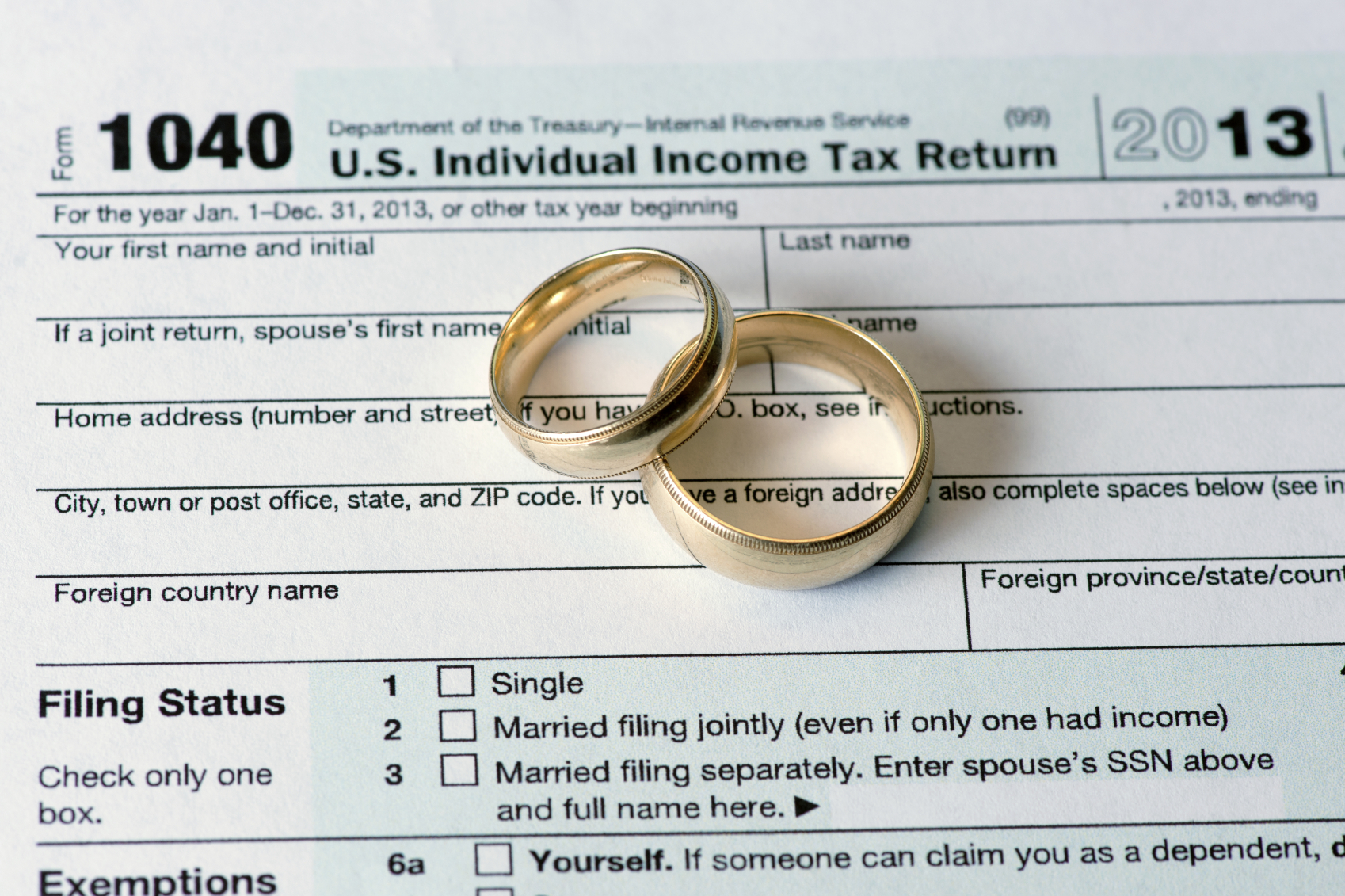HOW DOES MARRIAGE AFFECT YOUR TAXES?
Tax brackets are different for each filing status. When you get married and file a joint return, your income is combined with your spouse’s and may no longer be taxed at the same rate as when you were single.
When you get married, it’s a good time to check your income tax withholding and make sure you’re not having too much – or too little – withheld from your paycheck. It is important to file a new Form W-4 with your employer, with the “Married” checkbox selected under most circumstances. When you do, it may be equally important to adjust the amount of withholding on the Form W-4.
Married couples have the option to file jointly or separately on their federal income tax returns. The IRS strongly encourages most couples to file joint tax returns by extending several tax breaks to those who file together.
If you file jointly, you’re affected by your spouse’s income, deductions, and other tax items. If you file separately, you may run into reduced tax credits, such as the child and dependent care credit, and you can’t claim the standard deduction unless your spouse does the same.
Couples who file separately receive few tax considerations. Separate tax returns may give you a higher tax with a higher tax rate. The standard deduction for separate filers is far lower than that offered to joint filers.
A marriage penalty exists when two individuals filing a joint return pay more tax than the sum of their individual tax liabilities calculated as if they were filing as single taxpayers. One reason this occurs is because the MFJ (Married Filing Joint) income tax brackets and standard deduction are not always equal to twice the single income tax bracket and standard deduction.
Couples in which one spouse earns all or most of a couple’s income rarely incur a marriage penalty, and almost always receive a marriage bonus because joint filing shifts the higher earner’s income into a lower tax bracket. Couples can benefit from filing separately if there’s a big disparity in their respective incomes, and the lower-paid spouse is eligible for substantial itemizable deductions.
Most of the time it makes more sense to file a joint tax return, but there are times when filing separate may make sense for you. If you’d like to discuss your specific situation, or learn more, please give us a call at 248-934-0550.














